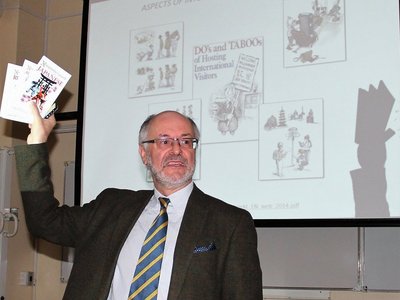

Many people are familiar with Erasmus+ as a mobility programme for students. However, the programme not only offers a wide range of opportunities from kindergarten to adult education. It also allows lecturers at higher education institutions to complete short teaching stays at partner institutions abroad.
The opportunity for Erasmus+ lecturer mobility is widely used by Austrian higher education institutions. Every year more than 1,000 lecturers of Austrian higher education institutions teach abroad for a certain period of time and approximately the same number of lecturers from other countries come to Austria to teach here. Since 2015 cooperation with partner countries worldwide has also been possible in addition to mobility within the Erasmus+ programme countries. Although the Corona pandemic has recently led to a slump in physical mobility cooperation often continued in a virtual way.
One person who has had diverse experiences with Erasmus+ staff mobility is the Erasmus+ ambassador Prof. (FH) Maximilian Schachner. He has been involved in internationalisation and academic mobility at the IMC University of Applied Sciences Krems for 24 years, is entrusted with the management of Erasmus+ mobility projects and, as a professor in the degree programme “Tourism and Leisure Management”, has himself completed numerous teaching stays at partner higher education institutions abroad.
These are his experiences gained during his Erasmus+ teaching stays:
“My mobilities (France, Finland, Sweden, Spain, Croatia, Turkey) have been very enriching both professionally and personally. In a nutshell: Working in different higher education teaching and learning cultures opens up new perspectives and allows creative interaction with heterogeneous groups of students – mostly in unfamiliar or “untried” situations. These “learning outcomes” can be integrated very well into one's own practice at home. And contacts with international colleagues often lead to sustainable return visits or research cooperations.”
Further information: erasmusplus.at/de/hochschulbildung/lehrende-und-personal
